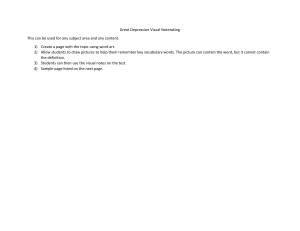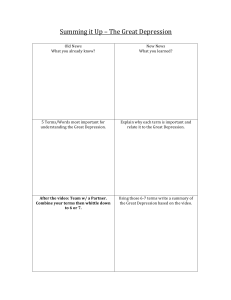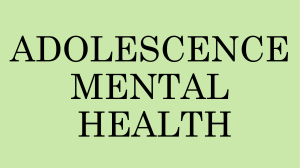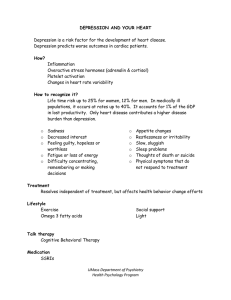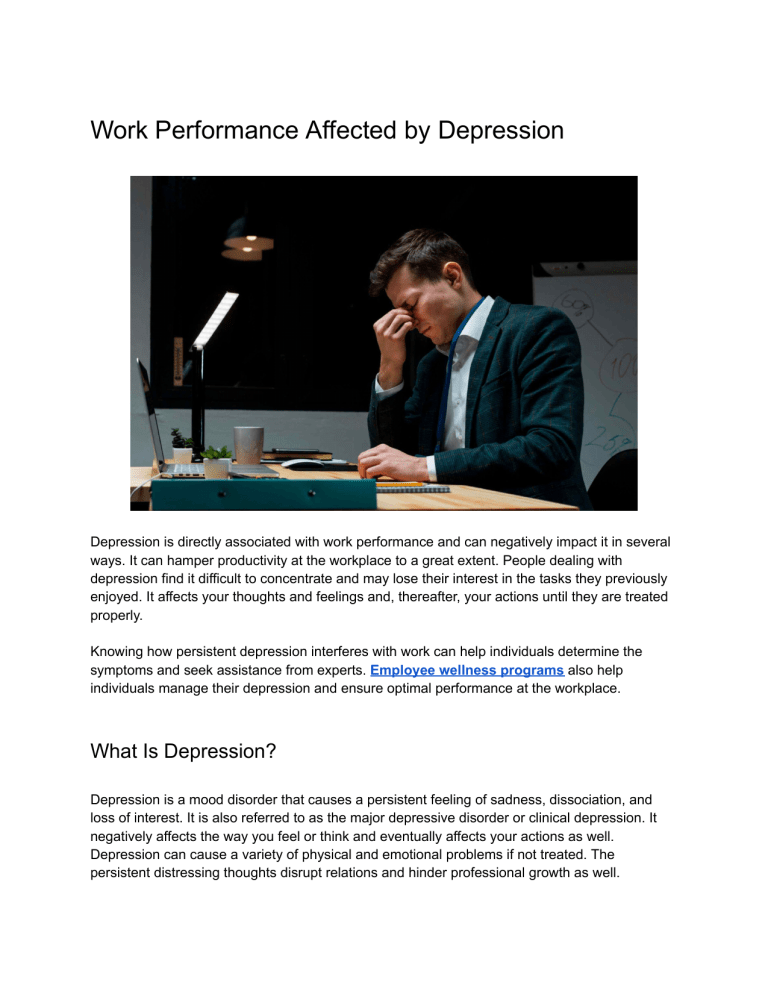
Work Performance Affected by Depression Depression is directly associated with work performance and can negatively impact it in several ways. It can hamper productivity at the workplace to a great extent. People dealing with depression find it difficult to concentrate and may lose their interest in the tasks they previously enjoyed. It affects your thoughts and feelings and, thereafter, your actions until they are treated properly. Knowing how persistent depression interferes with work can help individuals determine the symptoms and seek assistance from experts. Employee wellness programs also help individuals manage their depression and ensure optimal performance at the workplace. What Is Depression? Depression is a mood disorder that causes a persistent feeling of sadness, dissociation, and loss of interest. It is also referred to as the major depressive disorder or clinical depression. It negatively affects the way you feel or think and eventually affects your actions as well. Depression can cause a variety of physical and emotional problems if not treated. The persistent distressing thoughts disrupt relations and hinder professional growth as well. What are the Signs and Symptoms of Depression? Depression can be identified by keeping an eye on the following signs and symptoms: ● ● ● ● ● ● ● ● ● ● ● ● A persistent feeling of sadness, emptiness, irritability, or hopelessness. Lost interest in the activities that were once enjoyable. A major shift in appetite (eating more or less than usual). Significant gain or loss in weight, which is often unhealthy. Trouble with sleep or excessive sleeping. Low levels of energy, tiredness, or fatigue. Purposeless physical activities to cope with the stress. Slowed movements of pressured speech. Sense of guilt or worthlessness. Trouble concentrating or making minor decisions. Obliviousness and trouble remembering things. Thoughts of self-harm or suicide. Sadness or feeling of blues is an integral part of human experiences. However, when this feeling becomes persistent and remains for several weeks, or months, it starts interfering with your ability to accomplish your day-to-day tasks. How Depression Affects Performance At Work? Depression is a detrimental condition that can affect productivity at the workplace in several ways. Some of the commonly observed effects of clinical depression on work are: Higher Absenteeism When employees are depressed, it becomes difficult for them to cope with the workplace challenges. When finding it hard to keep up with the job roles, they start taking days off even for the most trivial reasons. The higher absenteeism not only affects their overall performance at the workplace, but also puts the burden of their share of work on the others. Excessive leaves can also have adverse effects on the project deadlines. Lost Productivity Depression can result in the lost focus and interest in the work. Besides, employees struggle managing time, meeting deadlines or accomplishing a task. When the tasks becomes ordeal, the willingness to attempt them also alleviates. Sometimes, the depression is caused due to a high workload, unrealistic expectations, or micro-management in the organization as well. Reduced Engagement Employees feel lethargic at the workplace at the start of the depression, and nothing excites them. The inability to perform to their best can lower their morale and reduce engagement. Its effects can be seen in the form of poor communication and social interactions at the workplace. Even the most exciting activities don’t seem interesting. Employees feel dissociated from the work environment and start isolating themselves, which eventually affects their individual performance as well as team tasks. Higher Risk of Burnouts Depression at work can cause anxiety. Employees develop excessive fear or worry about getting the work done, especially in stressful situations. They also get a sense of guilt for missing deadlines or letting others down. Withdrawal or isolation from friends or colleagues, unexplained crying, and low energy altogether promote the risk of stress, anxiety, or burnout. More Errors In Work Employees are more likely to make mistakes when they struggle with focusing. Anxiety or depression can alleviate the attention span, thereby making employees prone to commit errors. Small mistakes can be overlooked; however, the repeated instances of the mistakes not only affect the quality of the projects but also hampers the reputation of the organization. Conflicts With Other Employees Depression causes frequent switches in the mood, making employees lose temper easily and getting into an argument with others. The unpleasant exchange between the employees ruins the harmony and work environment and above all, hampers the peace of the mind. How To Deal With The Workplace Depression? Employees can deal with depression at the workplace with a few effective DIY hacks, as explained below: Communication Is The Key When experiencing depression, you can communicate with your friends and colleagues and discuss your current state of mind. Sharing your thoughts can make you feel better. Moreover, you can also discuss your feelings with the employer, and they may guide you in finding the help resources to combat depression. Break Bigger Tasks Into Smaller Chunks Heavy tasks are often ordeal and tedious. They are one of the possible reasons behind the loss of interest in work. Employees tend to avoid or delay attempting such tasks, resulting in delayed submissions and guilt born out of it. However, when you learn to decompose this task into smaller chunks and accomplish one after the other, you will see it vanish with consistent efforts. Take Breaks To Revive Taking regular breaks at work can have multifaceted benefits. It can revive your physical and mental health. It helps employees recharge and refocus, keep focus intact while working, thereby reducing the scope of the errors. They can also alleviate the stress levels and decrease burnouts. How Employee Wellness Programs Can Reduce Depression At Work? Many companies implement corporate wellness programs to support the mental health of the employees at the workplace. Employers provide resources to the employees for the betterment of their mental health. These programs are based on the needs of the employees and encourage mindful activities to support mental health. Also, employers assist employees with who to talk to or where to access the right mental health resources. For instance, if you are looking for best psychiatrist in Mumbai for depression, they can guide you in finding the right help. Furthermore, employers join with the employee assistance program providers to design a suitable program that can effectively address the most concerning mental health issues at work. They also conduct stress reduction workshops and seminars for the employees.
